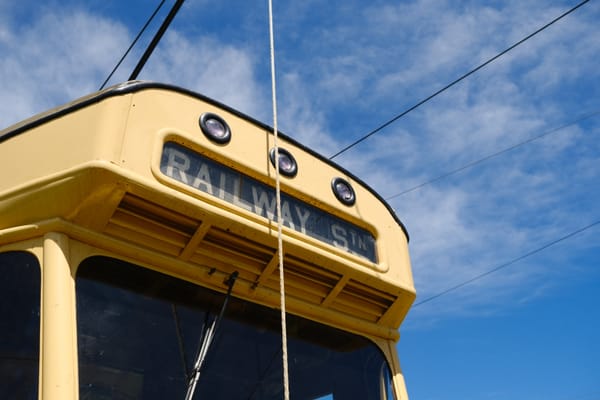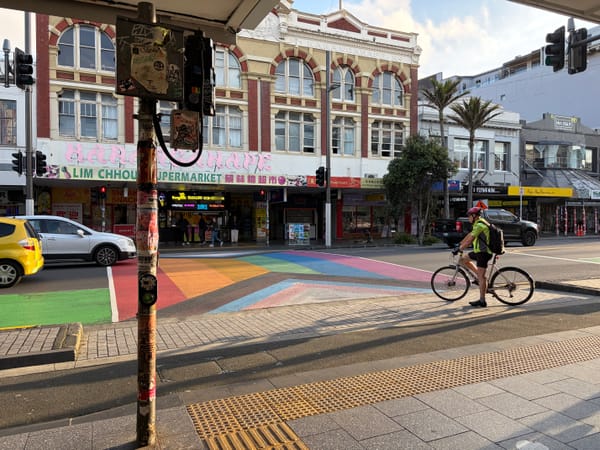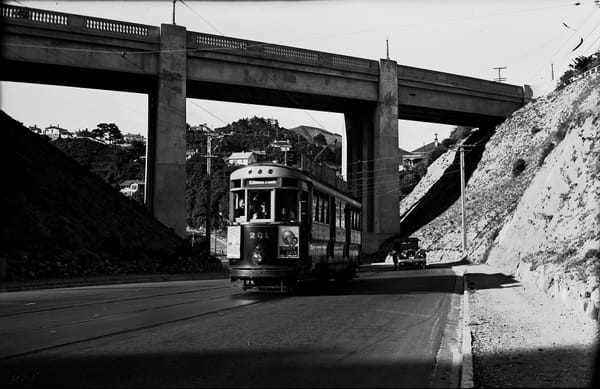Spending Saturday at Electrify the Hutt
There is a lot of bill slashing technology. Everything was on show at Electrify the Hutt.
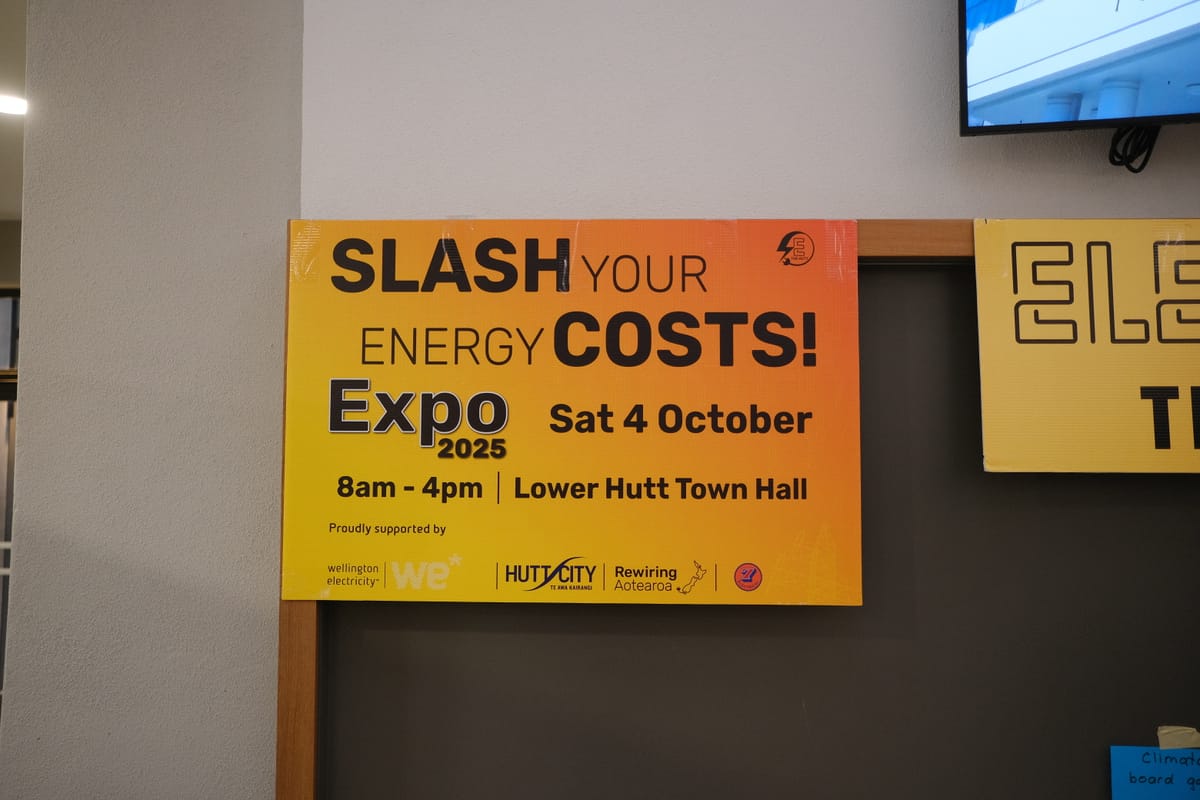
Wellington climate issues index
On Saturday, I caught the 83 to the Lower Hutt Town Hall and explored an electrifying expo. Electrify the Hutt is the latest in a series of events where regular people can learn about eliminating their dependence on fossil fuels with modern electric machines.
It was run by Rewiring Aotearoa: one of the most effective climate advocacy groups on the block. Their top priority is on slashing bills. Slashing pollution is the added bonus.
Rewiring Aotearoa team members, Ben and Jay, chatted with me about their work in this space.
“We have a voter base in New Zealand that is increasingly dissatisfied with the cost of living pressures that they’re facing,” Ben explained, “with energy in particular, too.”
Gas prices keep rising, which is an opportunity for Kiwi to reconsider their reliance on fossil fuels. Rewiring Aotearoa is selling electrification as an easy and fast way to cut costs.
They’re putting in the hard mahi, organising communities and offering experts up to regular people so any and all questions can be addressed. They’re running expos like Saturday’s one in towns across the motu, talking at Fieldays, even running a Vote Electric campaign for local elections.
”[Council] candidates might not be able to campaign on lower rates,” Jay explained, but electrification can help them win votes. “They can campaign on helping reduce cost of living through energy affordability loans and by electrifying council assets.”
Their campaign is a “test case” for next year’s general election, Ben explained. The Rewiring team can sense an opportunity to shift the narrative towards climate action by promoting low pollution technology that slashes bills.
And there is a lot of bill slashing technology. Everything was on show at Electrify the Hutt: hot water heat pumps, electric rubbish trucks, solar installers, electric lawnmowers and even a fully electric 20-tonne loader.
I spoke to a few interesting stallholders there to get a glimpse of some cool electric machines.
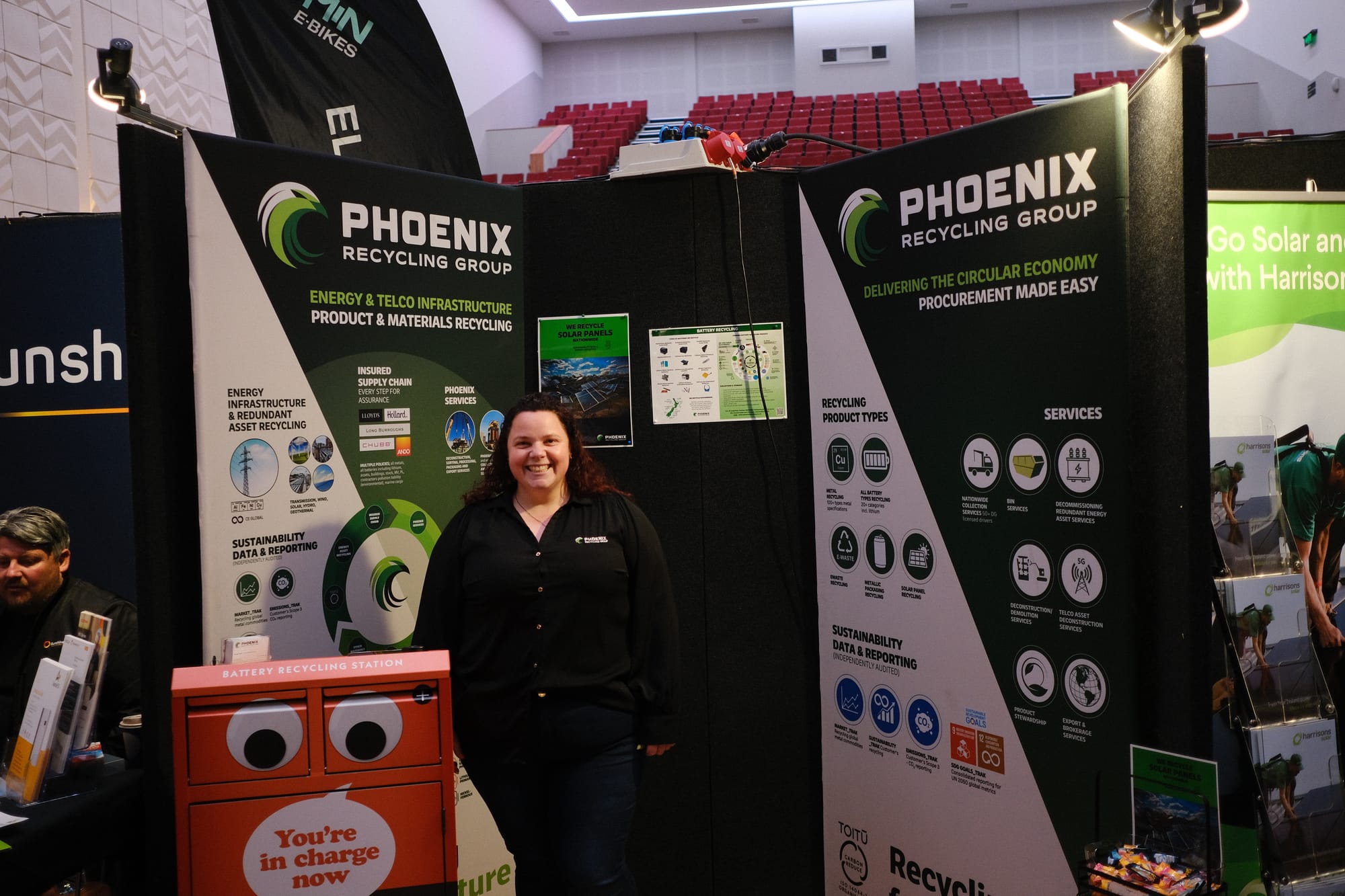
Recycling solar and batteries
Morgan Joynt stood with one of her company’s big, googley eyed bins for recycling batteries. She’d borrowed it from Hutt City Council for the expo.
“It’s got fire extinguishing and 24/7 temperature monitoring,” she told me and a lovely older guy looking for a solution to his and his wife’s growing dead battery collection.
Morgan is part of Phoenix Recycling – the first firm in Aotearoa legally permitted to recycle solar panels. They recycle batteries, solar, and more through international recycling plants.
I’m usually a cynical grump about plastic recycling, but recycling electronics like solar panels is exciting. When a battery or solar panel is recycled appropriately, Morgan told me that over 90% of materials can be recovered and used in future machines. Unlike fossil fuels, which burn into the air, there’s a chance to eventually make new renewables out of old renewables.
Recycling precious metals is still far from commonplace. The core problem is price: New Zealand’s low landfill costs make it cheaper to dump waste than recycle it. To make solar and battery recycling the norm, we need to change that.
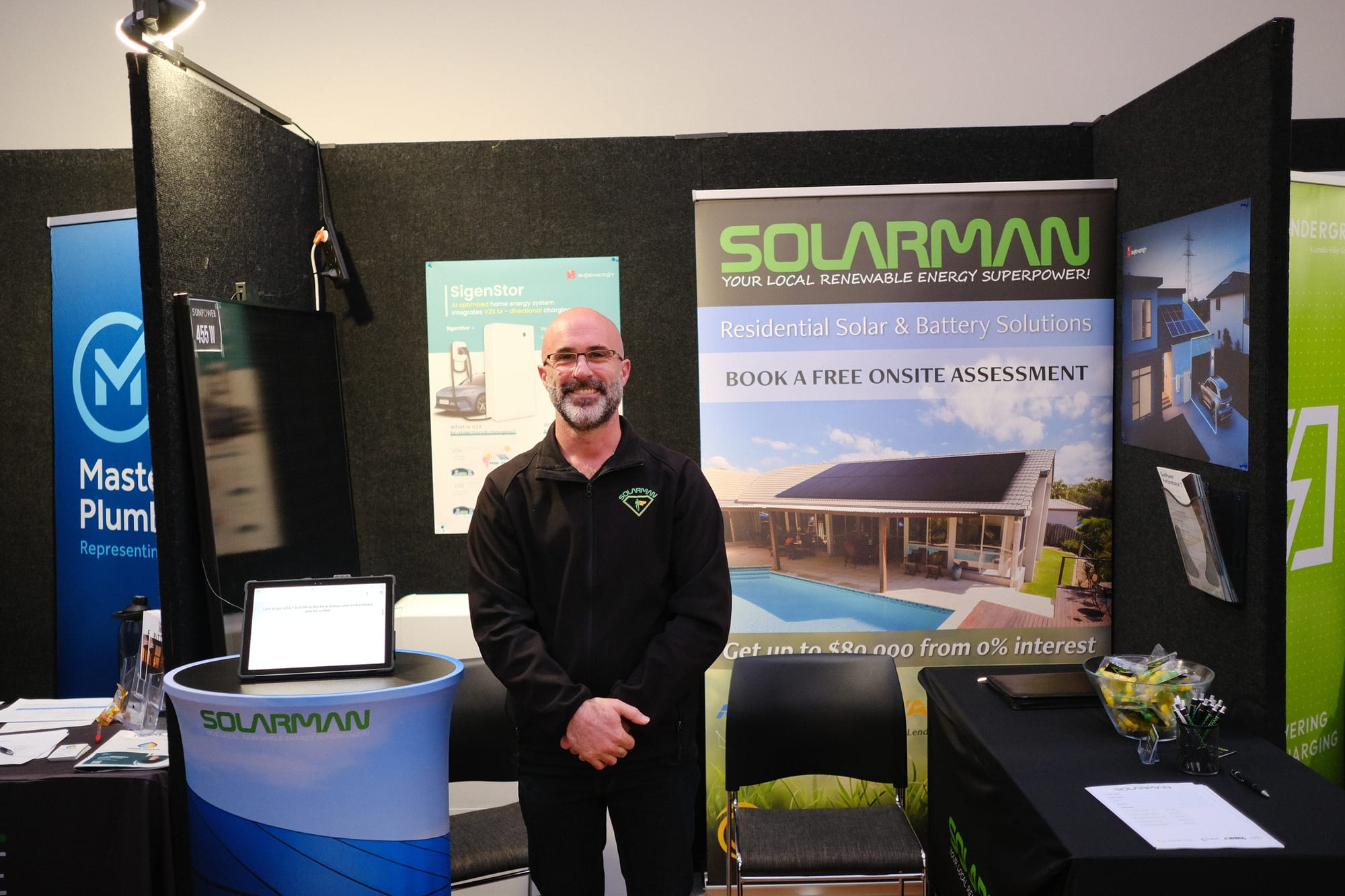
A decade of solar installation
Tony Penman from Solarman was one of many solar installers at the Expo. “I’ve been in the industry for 12 years,” he told me. After being made redundant a couple of times, he started his own business.
I asked him what it’s like being in the industry when solar panels got so affordable and so efficient. He was clearly astounded by the difference. In 2013, it wasn’t clear whether solar could compete with fossil fuels. Now, switching to solar is very cost competitive.
With better value panels every single year, Tony’s seen huge growth in his leads. More and more customers are coming on board wanting “energy independence” and “resilience”. Most of all, they want to kiss gas goodbye.
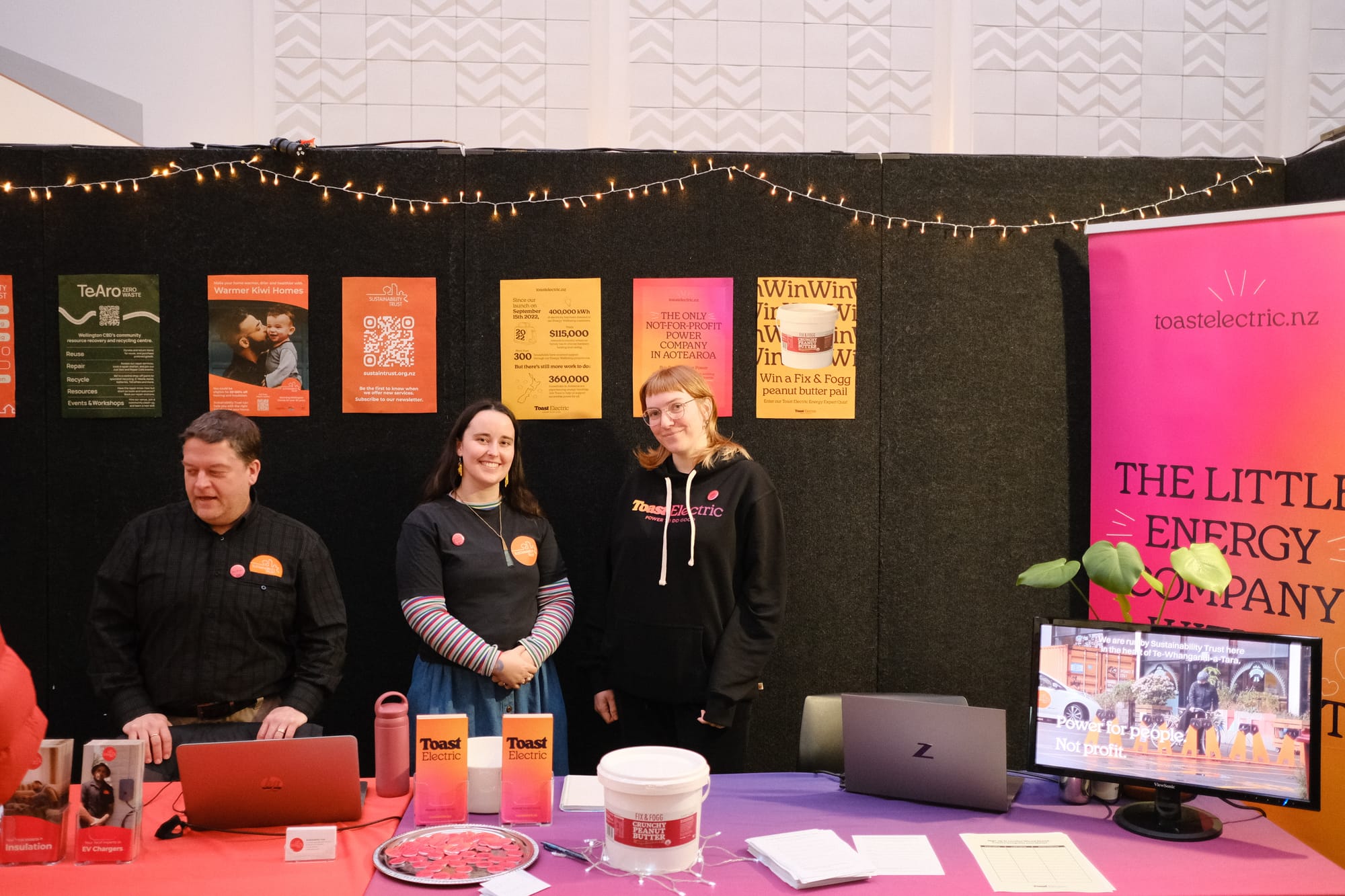
Energy that helps others
Toast Electric is an electricity company run by Sustainability Trust. They invest all of their profits to make power cheaper for low-income Wellingtonians. For every four Wellington households that join, they can support one household struggling with their power bill.
(Disclaimer, I used to work at Aro Digital who did marketing for Toast’s launch.)
Emlou and Faith from Toast were offering surveys about our power. Lots of people were coming along nervous about their gas prices.
For renters like Emlou, upgrading a gas stove or hot water cylinder required convincing their landlord. Everyone should be able to enjoy those savings – not just home owners. I’ve written about how we can make that happen for renters in a previous article.
Sustainability Trust has been working for yonks to help households who might struggle to afford upgrades get subsidised heat pumps and insulation. They do great work upgrading and electrifying our region.
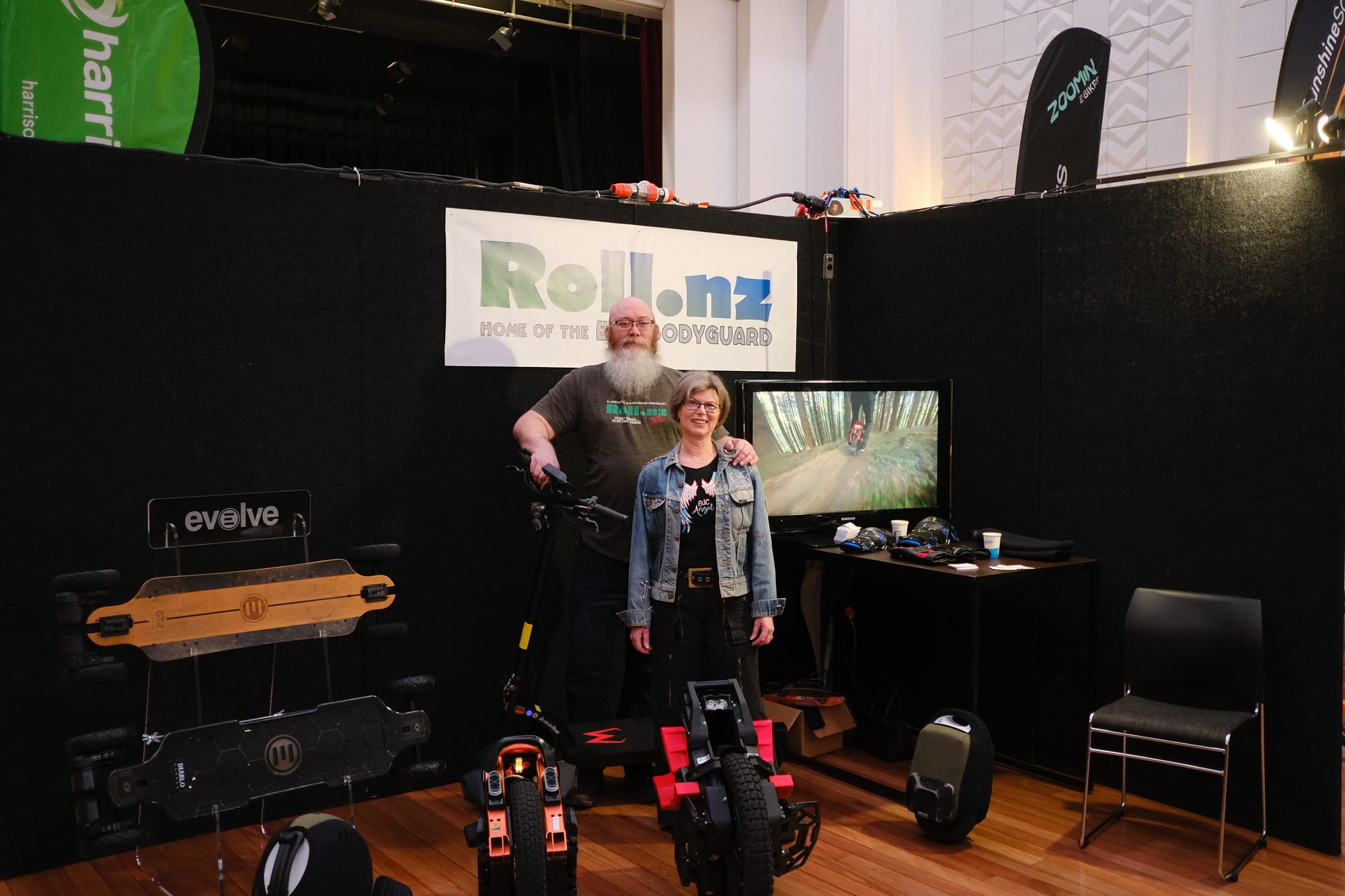
Electric unicycles
I had a fucking blast with Roll NZ. They import what’s sometimes called “electric micromobility” – think e-bikes, e-scooters, e-unicycles.
Yes, e-unicycles. One wheel, a battery, automatic stabilisation, and endless fun.
Kevin and Chrissi at Roll NZ were gracious salespeople. They’d been selling this tech for years, originally getting cheaper plastic electric unicycles then switching to hardier metal machines.
“Do you want to try one?” I felt that I needed to, for research purposes. It was thrilling. I grinned the entire time, just like I do on my e-bike.
Kevin told me that a customer switched to an electric unicycle from a bike. When they took it on the train, “they could sit anywhere!” With small electric machines, the world really is your oyster.
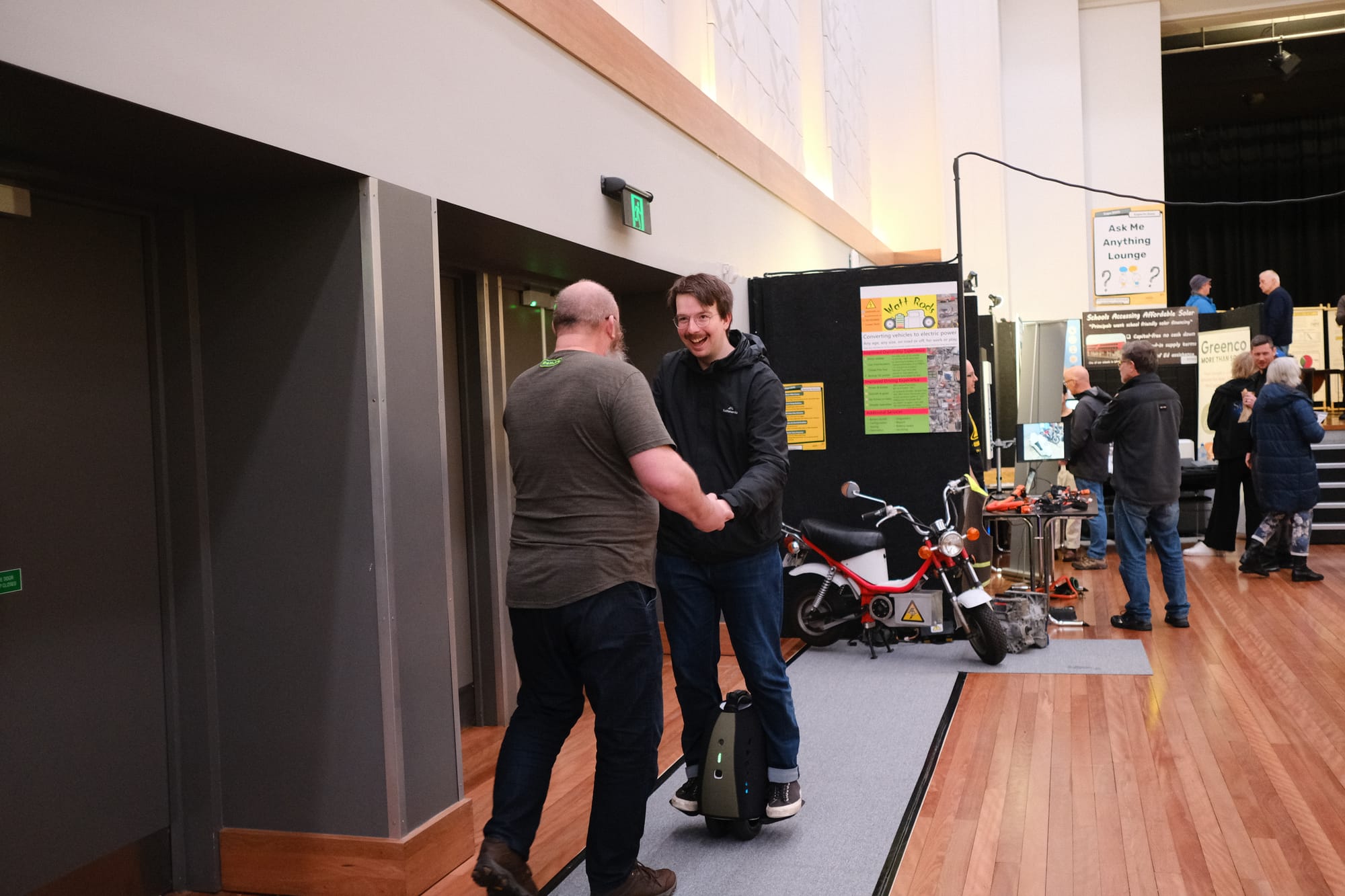
I’m a big e-bike fan. My partner always travels by e-scooter. Our electric personal transport offers us freedom and flexibility. Small businesses like Roll NZ are unlocking mobility for more people without depending on petrol engines.
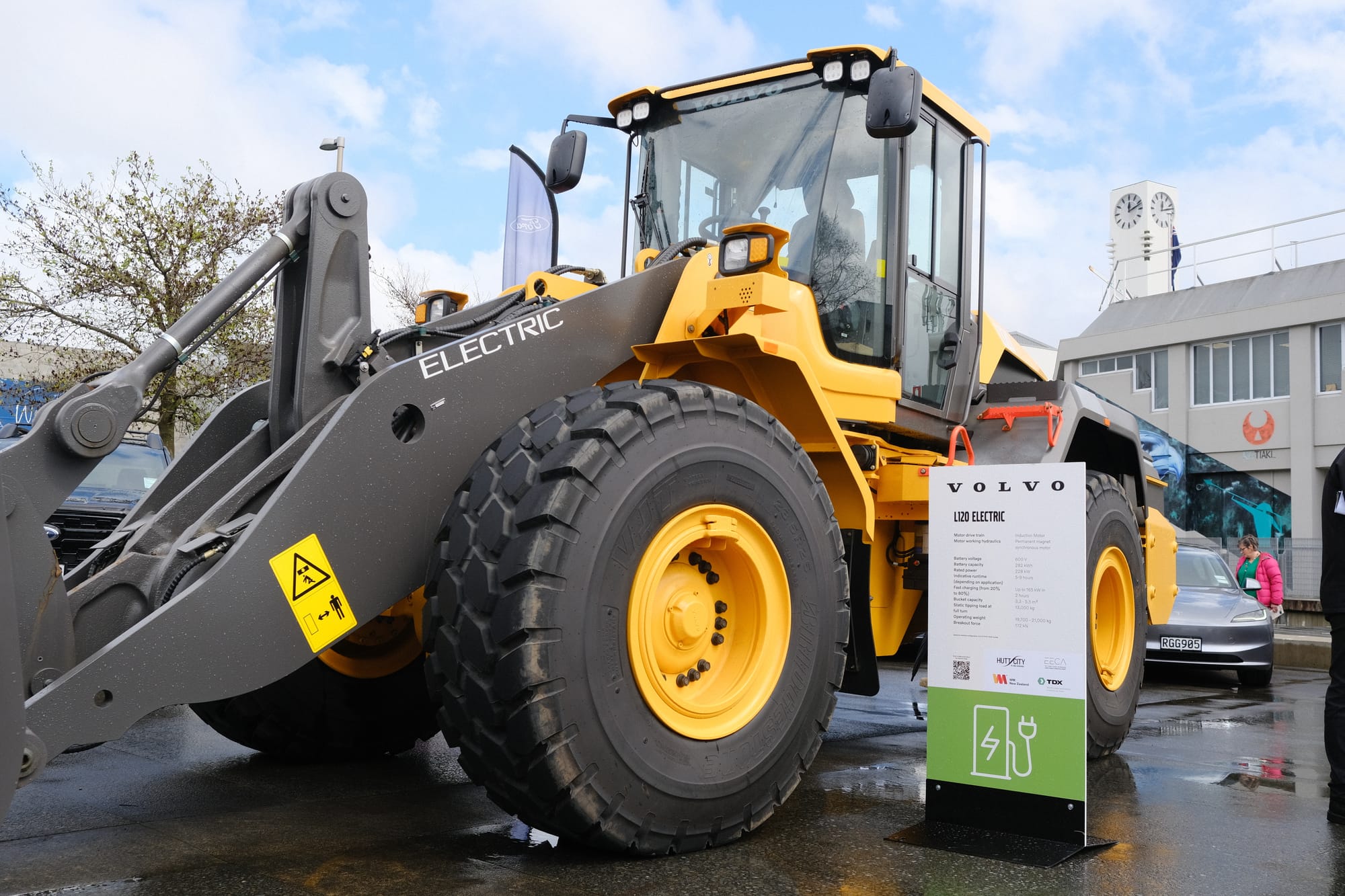
Electrifying our heavy machinery
To top it off, I got to sit in a 20-tonne, fully electric loader destined to operate at the Silverstream landfill. 6 tonnes of carrying capacity, huge wheels, and almost silent operation. It weighs the same as its diesel cousin with the same amount of grunt.
A Volvo representative told me that these vehicles are not quite cost competitive – yet. Small vehicles like electric cars have the scale to be cheaper than their fossil fuelled predecessors. Giant industrial machinery like loaders don’t have the same benefit.
Hutt City Council has chosen to buy fully electric machines regardless. This choice will spur innovation and make future loaders more affordable – benefiting private businesses that don’t have the same financing options.
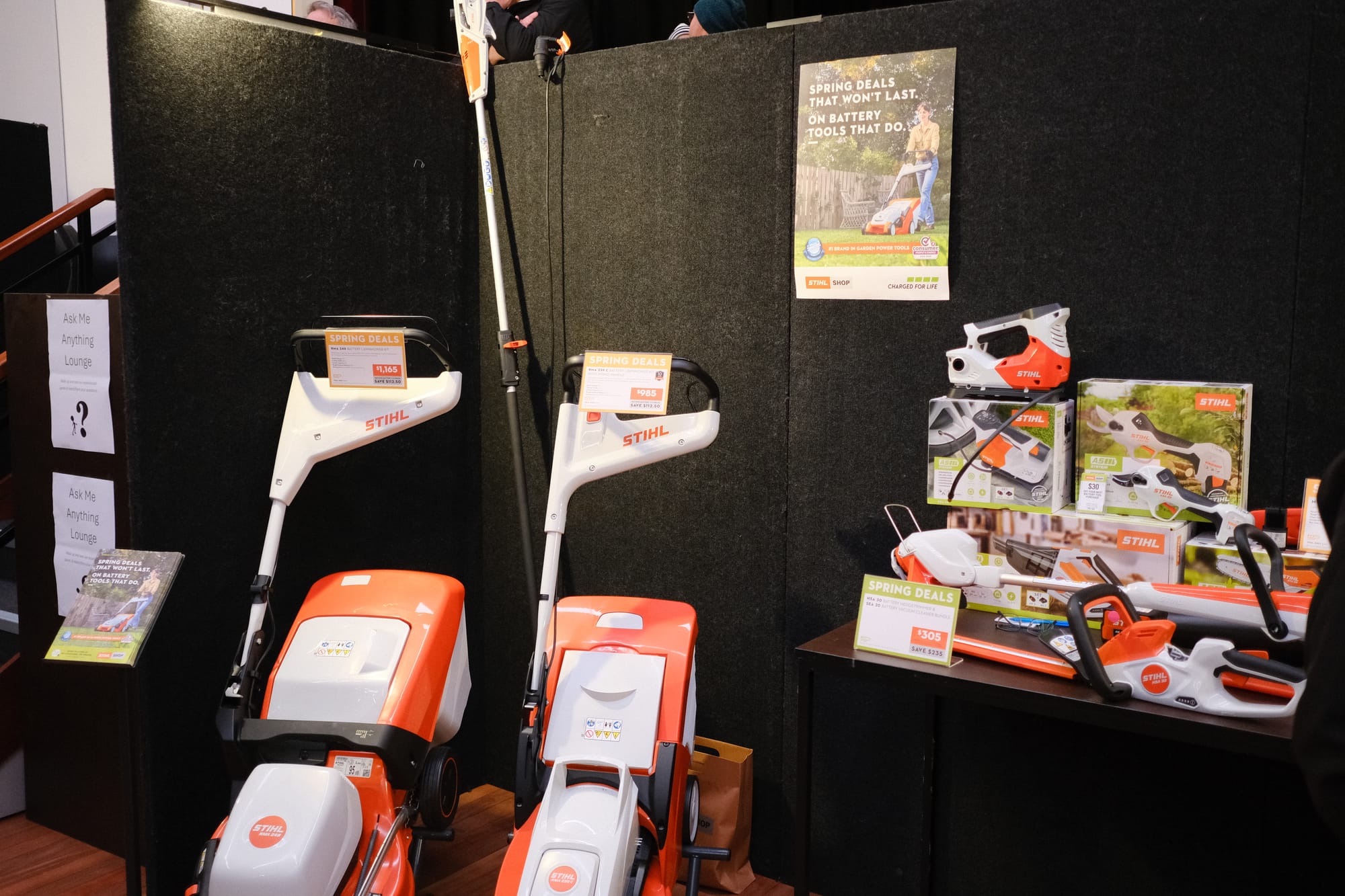
Electric innovation rocks
I left the expo brimming with excitement. In the next two decades, New Zealand will transform how it powers homes, vehicles, and industry.
Someday, Saturday mornings won’t be disturbed by overeager neighbours cranking a lawnmower’s petrol engine. Instead, the suburbs will quietly hum with electric motors, saving our lungs and the atmosphere from pollution. Our cars and bikes will run on electrons made on our roofs, not oil imported from abroad.
The question isn’t whether this transition happens – it’s how fast and how accessible it is for everyone.
Rewiring Aotearoa is doing its part to accelerate the transition. They’re connecting everyday Kiwi with electric technology and advocating for better government policies so electrification is available to all.
We need more events like these. The electric future is bright—and within reach.


